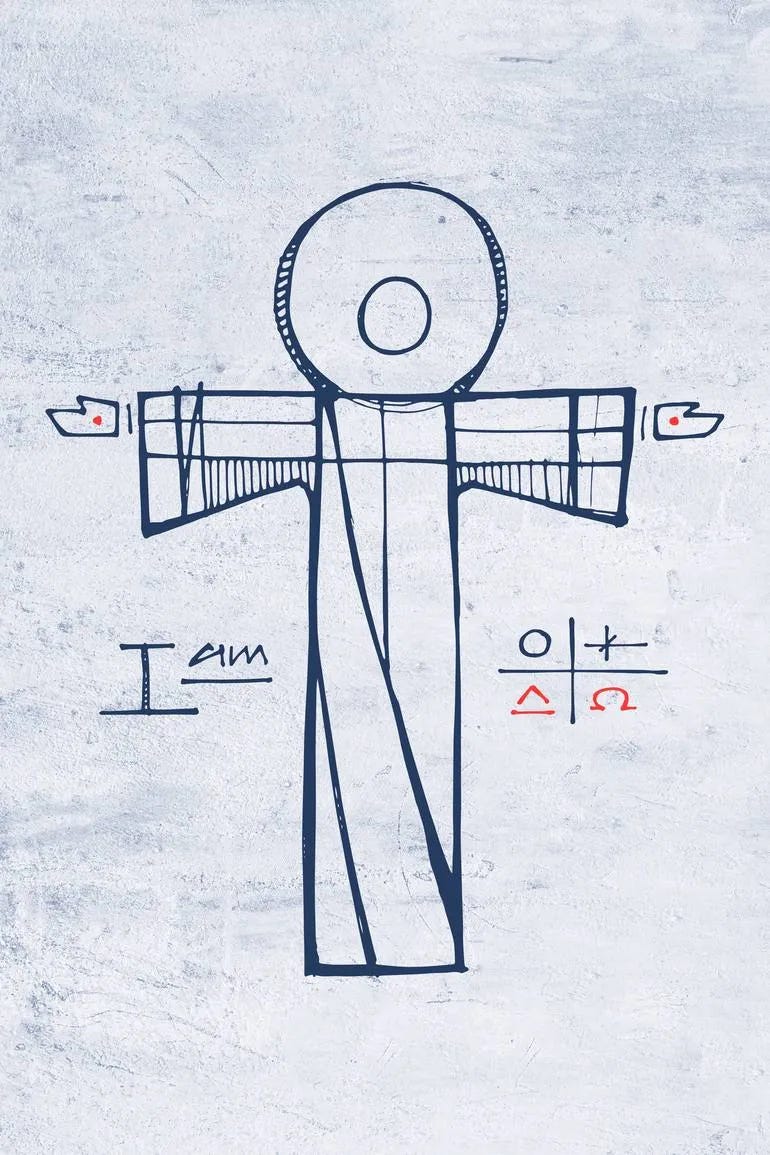Comfort, O Comfort: We have a Loquacious Lord
Second Isaiah is the New Testament's Operating System
Isaiah 40.1-11
The Old Testament lectionary text for this Second Sunday of Advent is from Isaiah 40:
Comfort, O comfort my people, says your God. Speak tenderly to Jerusalem, and cry to her that she has served her term, that her penalty is paid, that she has received from the Lord's hand double for all her sins. A voice cries out: "In the wilderness prepare the way of the LORD, make straight in the desert a highway for our God.
Every valley shall be lifted up, and every mountain and hill be made low; the uneven ground shall become level, and the rough places a plain. Then the glory of the LORD shall be revealed, and all people shall see it together, for the mouth of the LORD has spoken." A voice says, "Cry out!" And I said, "What shall I cry?" All people are grass, their constancy is like the flower of the field. The grass withers, the flower fades, when the breath of the LORD blows upon it; surely the people are grass. The grass withers, the flower fades; but the word of our God will stand forever. Get you up to a high mountain, O Zion, herald of good tidings; lift up your voice with strength, O Jerusalem, herald of good tidings, lift it up, do not fear; say to the cities of Judah, "Here is your God!" See, the Lord GOD comes with might, and his arm rules for him; his reward is with him, and his recompense before him.
He will feed his flock like a shepherd; he will gather the lambs in his arms, and carry them in his bosom, and gently lead the mother sheep.
As has long been recognized, the Book of Isaiah is not a single book but a collection of three different books compiled by three distinct prophets whose prophetic callings span centuries of the history of the People of Israel. After the Psalms, Second Isaiah, the central section comprising chapters forty to fifty-five, is the book of the Old Testament most often quoted by the New. Indeed so central to understanding were they to understanding the person and work of Jesus Christ that the ancient Church Fathers referred to these chapters of Isaiah as the Fifth Gospel. My friend and mentor Fleming Rutledge refers to Second Isaiah as the “operating system” of the New Testament and as “the matrix” through which the apostolic gospel should be interpreted.
Between the conclusion of First Isaiah and the beginning of Second Isaiah there is a long pause of one hundred and sixty years during which time Israel’s history moves from the precipice of God’s impending judgment to the brute fact of the judgment of God. Isaiah 39– the end of First Isaiah— concludes with the prophet staring into the abyss of Israel’s life and faith. For the People’s unfaithfulness— Jerusalem will be taken away, its people will be carried away to Babylon, and there “they will be made eunuchs in the palace of its king,” the prophet preaches.
And then, it happens.
The words of the prophet comes to pass.
Or rather, the Word of the Lord works what it says.
Josiah, the good king of Judah, is taken by death. The City of David is devastated. The Temple is razed to the ground. God’s People are scattered, expelled by an invading empire. It’s between First Isaiah and Second Isaiah, between chapters 39 and 40, that Israel sings laments such as Psalm 137: “By the rivers of Babylon we sat and wept when we remembered Zion.”
“I will be your God and you will be my People,” the Lord had promised Moses near the banks of the Nile, but by rivers that belonged to a different pharaoh that promise appeared to be every bit broken. Over a century and a half pass between the end of First Isaiah and the beginning of Second Isaiah, which means God’s People do not suffer simply exile. God’s People suffer God’s silence. After the Word of the Lord comes to First Isaiah, God’s Word comes not at all, for almost two hundred years.
Until, through no earning or deserving on the part of God’s People, the Word of God comes again, to this anonymous, no account prophet who speaks words of comfort and incomparability.
Realize how ridiculous the prophet Isaiah must appear to anyone who has not the eyes of faith.
He’s an exile in a pagan empire.
The “battering rams of Nebuchadnezzar” had destroyed his nation and reduced its expelled population to a subjugated remnant. Whoever is this prophet we call Second Isaiah, he belonged to a tiny, beleaguered community of hostages living in a decadent city dominated by statues of the goddess Tiamat and temples to the god Marduk.
As Fleming Rutledge says:
“The humiliated Israelites were a people of no consequence in the presence of the world-dominating presence of the Babylonian Empire.”
You’d have to be a fool not to conclude that the God of Israel had lost his might— or, worse, forsaken his promises to his People.
And here comes this solitary prophet from a ghetto of disgraced and defeated captives and he has the chutzpah to turn towards the armies and edifices of an empire, to dig in his heels, and to hurl in their faces the Word of the God of Israel.
Joseph, son of Jacob, may have had a dream. Joseph, husband of Mary, may have had a dream. Dr. Martin Luther King Jr. may have had a dream. But the Holy One of Israel does not dream.
The God of the Bible does.
The God of the Bible acts.
The God of the Bible speaks.
Keep reading with a 7-day free trial
Subscribe to Tamed Cynic to keep reading this post and get 7 days of free access to the full post archives.




